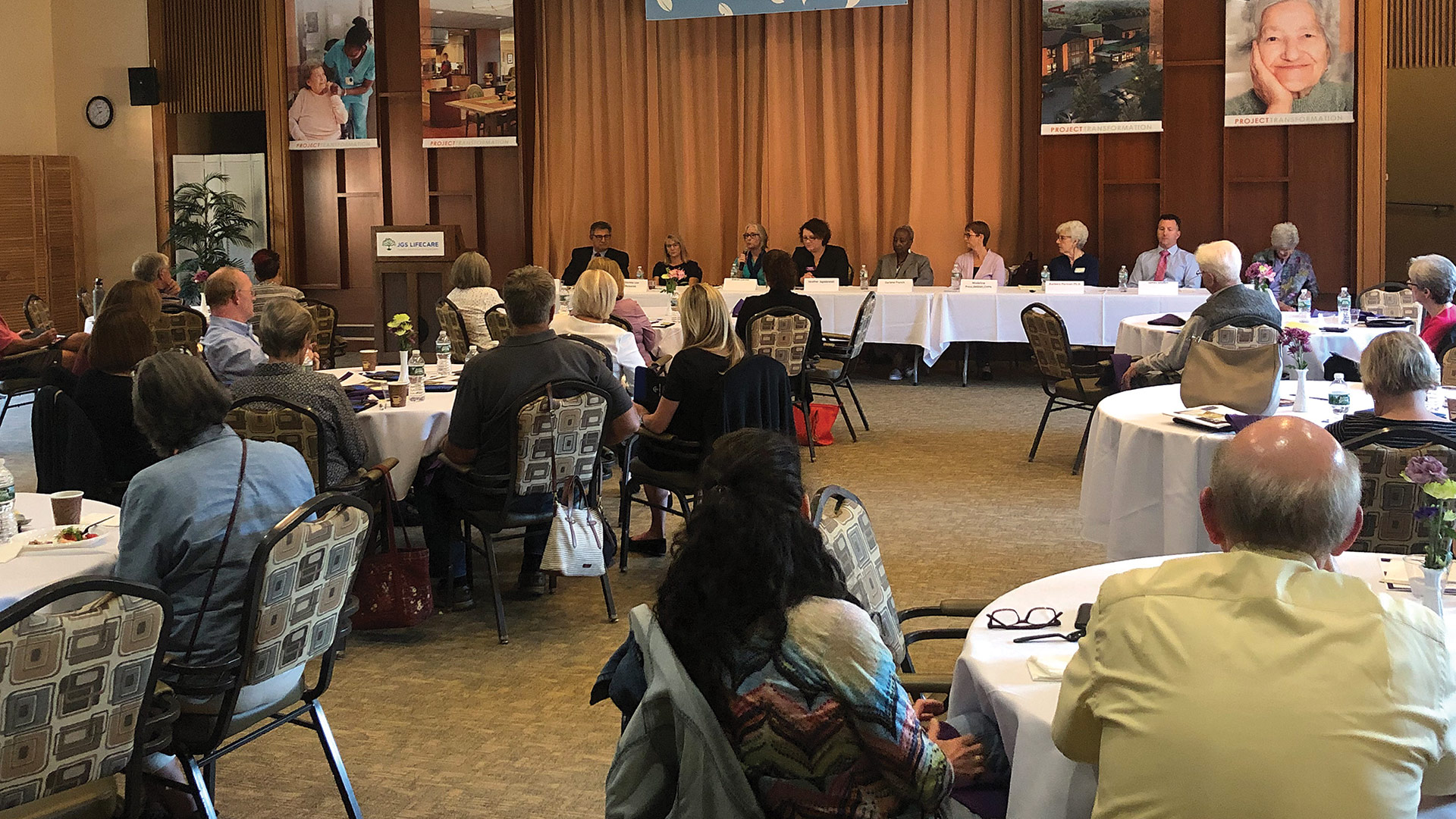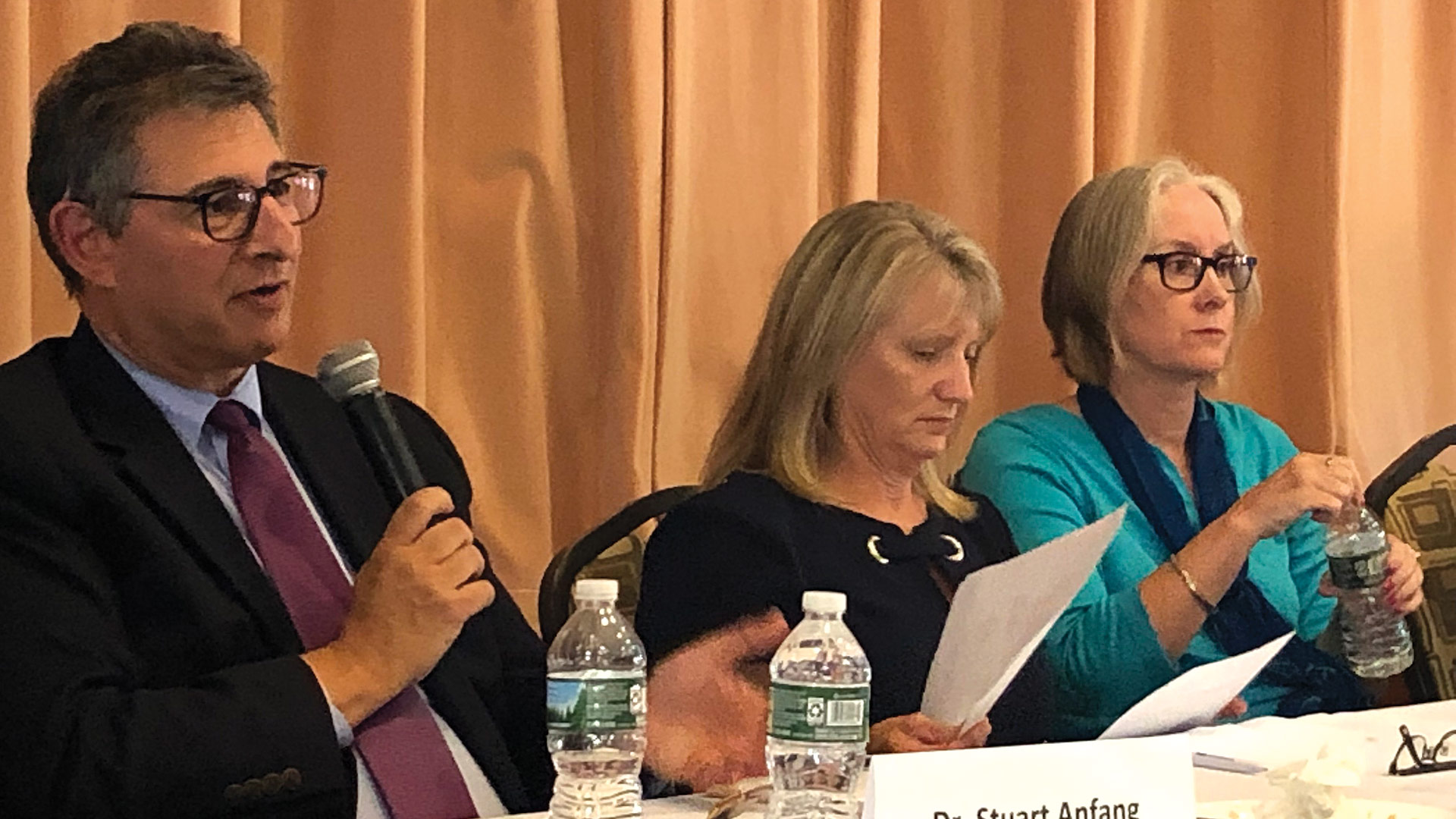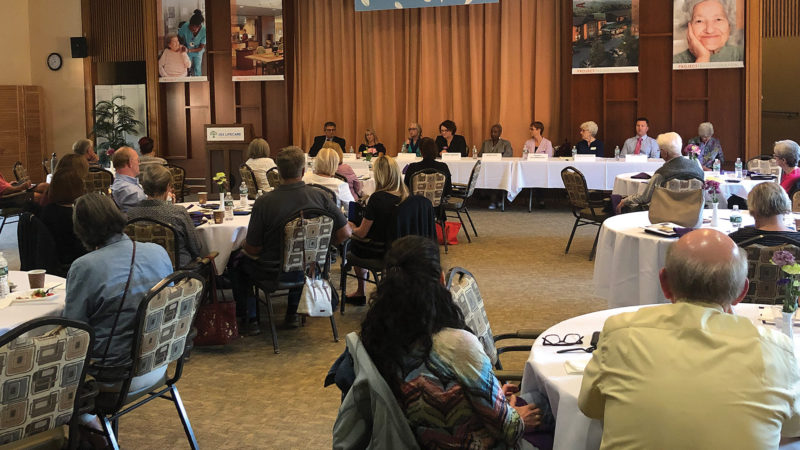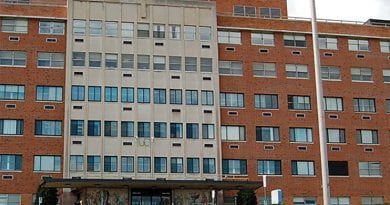Panel Offers Advice, Resources for Dementia Caregivers
Help at a Crossroads
Dementia is a growing issue in America — one that causes plenty of anxiety among caregivers in need of resources.
“As people are living longer, they are at risk for cognitive disorders, including dementia and Alzheimer’s disease,” said Dr. Stuart Anfang, medical director of the Memory Disorder Program at Baystate Medical Center.
Anfang explained the differences between dementia and Alzheimer’s disease and how to obtain an evaluation and care recommendations as part of a dinner and discussion on “Caring for Someone with Alzheimer’s Disease,” held Sept. 19 at JGS Lifecare.
About 45 community members came out to listen to a panel of nine local experts from across the care spectrum, who offered information, support, and resources to help families recognize and cope with a loved one with dementia or Alzheimer’s disease.
“Living with illness as you get older is like living with a hurricane. Decide to be prepared, and do what you can do now.”
Attorney Lisa Beauvais emphasized the importance of having a loved one sign a healthcare proxy, to identify someone to take care of medical and placement decision, and a power of attorney, to identify someone to take care of financial affairs, while they are able to understand and make these important decisions. Without these legal documents, one’s only recourse is use of the courts, which is both costly and time-consuming.
Darlene Francis, executive director of Ruth’s House Assisted Living, and Madeline Presz, executive director of Spectrum Home Health & Hospice Care, talked about the services of their respective organizations.
“In the Ruth’s House Garden Neighborhood, we help people living with dementia and Alzheimer’s disease live as normal a life as they possible can,” Francis said. “As their disease progresses, so does their care. The key is to keep their mind stimulated, keep them active and engaged. We educate families as well as providing a safe, nurturing, and loving environment for our residents.”

Added Presz, “Spectrum offers a wide array of supportive and rehabilitative services to people in their own homes, including skilled-nursing services; physical, occupational, and speech therapy; home safety evaluations; and home-health-aide services, such as helping with activities of daily living — dressing, getting in and out of the shower, grooming, and meal preparation. Our hospice services, offered to those with life-limiting illnesses, provides comfort and quality of life and a dignified end to life, in a person’s own home, be it their personal home, an assisted-living residence, or a nursing home — wherever they may be.”

Barbara Perman, president and CEO of Moving Mentors, offered tips and strategies including forming a caregiver circle, rightsizing and deciding what is still important to keep, reviewing family finances, becoming educated on care options, making connections and building bridges, and avoiding making assumptions, instead discussing matters with one’s family members.
“Living with illness as you get older is like living with a hurricane,” she said. “Decide to be prepared, and do what you can do now.”
Jim Leyden, director of the Longmeadow Adult Center, spoke of senior centers as evolving and dynamic organizations that offer a wide array of programs and services to meet the needs of older adults and seniors. Within a year, the new Longmeadow Adult Center will be completed, offering activity rooms, a café, a gymnasium, and a walking track.
Rachel Tierney, a retired nurse who cared for her husband, Jim, put a face on the care partner on the Alzheimer’s journey, sharing photos of Jim and his family. She stressed that it takes a family and a village and a lot of resources to help manage the journey of Alzheimer’s disease, encouraging participants to become familiar with the resources that are available.
Other presenters included Heather Jagodowski, program coordinator at the Alzheimer’s Assoc. of Western Massachusetts, and Shannon Connor, geriatric care manager and owner of Choices Elder Support.
Jagodowski partners with local nonprofits to spread education and awareness about dementia and Alzheimer’s disease. She will be presenting three upcoming seminars at Ruth’s House Assisted Living Residence: “The 10 Warning Signs of Alzheimer’s” on Tuesday, Oct. 29; “Safety and Memory Challenges” on Wednesday, Nov. 13; and “Understanding and Responding to Dementia-related Behavior” on Monday, Nov. 18.




